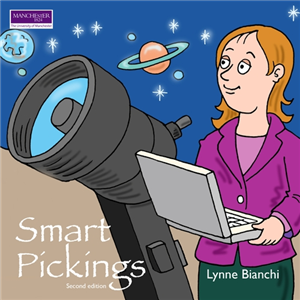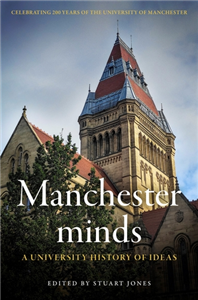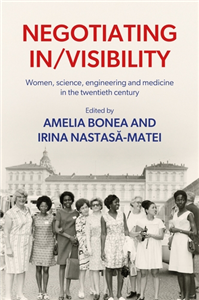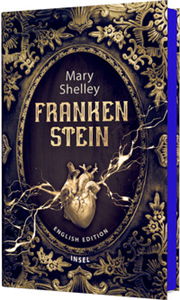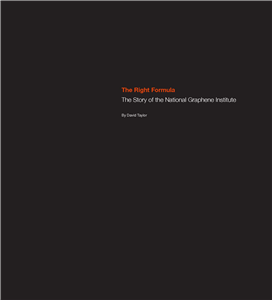Your Search Results
-
Promoted Content
-
Promoted ContentFebruary 2023
Tobias Mayer
or measuring the earth, sea and sky
by Thomas Knubben
—300th birthday of Tobias Mayer in February 2023 — The rediscovery of a great scientist — A chapter in the fascinating history of science The story of Tobias Mayer's life (1723 to 1762) is that of a child prodigy and orphan who became a pioneer of the Enlightenment as a cartographer, mathematician, physicist and astronomer. Having never been to university, at the age of 28 he was appointed a professor in Göttingen by the Elector of Hanover and King of England. He revolutionised cartography with his zeal and skill, helping sailors to find the right path across the seas and providing people with the firstever clear view of the moon. 17th February 2023 marks the 300th anniversary of the birth of Tobias Mayer. High time to recall this prototype of a scientist.
-
 Trusted Partner
October 2022
Trusted Partner
October 2022Ernst Haeckel
Zoologist, artist, philosopher and freethinker
by Rainer Willmann
Ernst Haeckel (1834–1919) is one of the most famous and influential researchers of all times. This brilliant biography by Rainer Willmann recounts Haeckel's fascinating life for science and his fight for freedom of thought. Haeckel is a vehement advocate of Darwinian doctrine and develops it further, which is why he is fiercely attacked not only by the church but also by his fellow scientists. Among other things, we owe to Haeckel the freedom of research and teaching that we take so much for granted. That he was also a talented artist is proven by his drawings of marine organisms ... The gripping and highly interesting life story of an extraordinary freethinker and scientist.
-
 Trusted Partner
March 2025
Trusted Partner
March 2025Leó Szilárd
The man behind the bomb
by Arne Molfenter
Leó Szilárd is a brilliant physicist - although he originally began his studies in Berlin without even being enrolled. On long walks home from university, he discusses scientific issues of all kinds with his professor and neighbour Albert Einstein. Szilárd, who is of Jewish descent, flees to London in 1933. His goal is to prevent the Germans from being the first to have nuclear weapons. With Albert Einstein and other scientists, he puts himself at the service of the American government to advance the development of an atomic bomb for defence purposes. When he realises that the Manhattan Project is not about defence, but about an attack on Japan, he is horrified. Author and journalist Arne Molfenter traces the life of this brilliant man whose invention was used completely against his intentions. It is an exciting book about a scientist whose research influenced the course of history.
-
 Trusted Partner
Children's & YAApril 2024
Trusted Partner
Children's & YAApril 2024Smart Pickings
2nd Edition
by Lynne Bianchi
Smart Pickings (2nd Edition) further engages young readers with the world of science. It promotes talk between children, their classmates, teachers, parents, family and friends. The book introduces a range of diverse and inspirational scientists who have or are making a difference through their innovations and research. A book to encouraging us all to wonder, ask questions and ask 'Who are they?', 'How might I be like them?'
-
 Trusted Partner
Biography & True StoriesJune 2014
Trusted Partner
Biography & True StoriesJune 2014A Biography of Paul Watzlawick
The Discovery of the Present Moment
by Andrea Köhler-Ludescher
This book, the world's first biography of Paul Watzlawick, written by his great-niece, describes the life of this philosopher, therapist, and best-selling author. Paul Watzlawick had a talent for languages and he led an adventurous life, from his childhood in Villach to studying in Venice after the war, to analyst training under C. G. Jung in Zurich, an attempt at establishing himself in India and then in El Salvador as a therapist, and finally to the Mental Research Institute (MRI) in the United States, headed by Don D. Jackson, a venerable scientist. This marked the beginning of the second half of his life, his amazing career as a communication researcher, a pioneer of systemic therapy, a radical constructivist, and a great thinker regarding the divisions between East and West. With many letters, lectures, interviews, and statements from contemporary witnesses and family members, this book makes Paul Watzlawick accessible as a human being and as a spiritually inspired, leading 20th century thinker. It includes a variety of unpublished material from Watzlawick, and introduces a comprehensive and exciting picture of the scientist and cosmopolitan person, Paul Watzlawick. Target Group: For people interest in Paul Watzlawick, communication sciences, systemic therapy, and constructivism.
-
 Trusted Partner
Humanities & Social SciencesSeptember 2024
Trusted Partner
Humanities & Social SciencesSeptember 2024Manchester minds
A university history of ideas
by Stuart Jones
A bicentennial celebration of brilliant thinkers from The University of Manchester's history. The year 2024 marks two centuries since the establishment of The University of Manchester in its earliest form. The first of England's civic universities, Manchester has been home and host to a huge number of influential thinkers and generated world-changing ideas. This book presents a rich account of the remarkable contribution that people associated with The University of Manchester have made to human knowledge. A who's who of Manchester greats, it presents fascinating snapshots of pioneering artists, scholars and scientists, from the poet and activist Eva Gore-Booth to the economist Arthur Lewis, the computer scientist Alan Turing and the physicist Brian Cox.
-
 Trusted Partner
Science & MathematicsAugust 2025
Trusted Partner
Science & MathematicsAugust 2025Negotiating in/visibility
Women, science, engineering and medicine in the twentieth century
by Amelia Bonea, Irina Nastasa-Matei
This volume brings together scholars from different disciplinary backgrounds to discuss how women contributed to the making, pedagogy, institutionalisation and communication of scientific knowledge in the twentieth century, and to reflect on the theoretical and methodological challenges of documenting such hidden contributions. Featuring examples from China, former Czechoslovakia, Greece, Hungary, India, Japan, Romania, the United Kingdom and the United States, the contributors discuss women's engagement with science across different institutional and non-institutional sites, ranging from the laboratory and the school to the clinic, the home and the media. The volume moves beyond the professional scientist model to enlarge our understanding of women's participation in twentieth-century science and document the complex combination of factors that rendered such contributions (in)visible to contemporaries and future generations.
-
 Trusted Partner
Humanities & Social SciencesMarch 1977
Trusted Partner
Humanities & Social SciencesMarch 1977The Leibniz-Clarke Correspondence
With extracts from Newton's 'Principia' and 'Optiks'
by Robert Gavin Alexander
n 1715 Leibniz wrote to his friend the Princess of Wales to warn her of the dangers Newton's philosophy posed for natural religion. Seizing this chance of initiating an exchange between the two greatest minds in Europe, the princess showed his letter to the eminent Newtonian scientist and natural theologian, Samuel Clarke. From his reply developed an exchange of papers which was published in 1717. The correspondence was immediately seen as a crucial discussion of the significance of the new science, and it became one of the most widely read philosophical works of its time.In this edition, an introduction outlines the historical background, and there is a valuable survey of the subsequent discussions of the problem of space and time in the philosophy of science. Significant references to the controversy in Leibniz's other correspondence have also been collected, and the relevant passages from Newton's Principia and Opticks are appended. In 1715 Leibniz wrote to his friend the Princess of Wales to warn her of the dangers Newton's philosophy posed for natural religion. Seizing this chance of initiating an exchange between two of the greatest minds in Europe, the princess showed his letter to the eminent Newtonian scientist and natural theologian, Samuel Clarke. From his reply developed an exchange of papers which was published in 1717. The correspondence was immediately seen as a crucial discussion of the significance of the new science, and it became one of the most widely read philosophical works of its time. Kant developed his theory of space and time from the problems at issue, and the post-Newtonian physics of the twentieth century has brought a revival of interest in Leibniz's objections: some of the problems are still not finally resolved. In this edition an introduction outlines the historical background, and there is a valuable survey of the subsequent discussions of the problem of space and time in the philosophy of science. Significant references to the controversy in Leibniz's other correspondence have also been collected, and the relevant passages from Newton's "Principia" and "Opticks" are appended. ;
-
 Trusted Partner
November 2023
Trusted Partner
November 2023On the Life and Death of Insects
The world of Jean-Henri Fabre
by Stephan Krall
— 200th anniversary of the birth of Jean-Henri Fabre on 21 December 2023 — First all-encompassing biography of the entomologist — Biodiversity as a hot topic Jean-Henri Fabre (1823–1915) was a French teacher, scientist and researcher. At a time when insects were not among the preferred biological objects of study (and if they were, it was only for them to be collected, pinned and identified), Fabre began to conduct behavioural research on insects. This was not appreciated until very late in his life, so Fabre and his family were largely destitute most of the time. Stephan Krall provides a very personal account of this extraordinary and passionate researcher of insects, spiders and scorpions, who managed to publish scientific documents, complete his doctorate and write books on the side. Today he is considered as one of the founding fathers of the behavioural biology of insects.
-
 Trusted Partner
December 2025
Trusted Partner
December 2025Frankenstein Or the Modern Prometheus
English Edition | The Gothic classic on the dark side of science | With sprayed edges
by Mary Shelley
An immortal tale about the dangers of excessive ambition and the essence of being human The ambitious young scientist Victor Frankenstein is obsessed with unlocking the secret to creating life. One fateful night, he achieves the unthinkable: he brings to life a creature of his own making. Horrified by the ugliness of his creation, though, he abandons this sensitive being, who desperately longs for love and acceptance. Rejected by the world and driven by a thirst for revenge, the creature ultimately turns against his creator – and everything he holds dear.Amid the majestic landscapes of the Swiss Alps, a bitter pursuit unfolds that leads to the icy reaches of the North Pole and into the darkest corners of the human soul. Mary Shelley’s timeless masterpiece is much more than just Gothic horror: it is a profound reflection on the dangers of boundless ambition and on the existential need for belonging and love.
-
 Trusted Partner
Trusted Partner
-
 Trusted Partner
Trusted Partner
-
 Trusted Partner
Trusted Partner
-
 Trusted Partner
Trusted Partner
-
 Trusted Partner
October 2009
Trusted Partner
October 2009Christian Science im Lande Luthers
Eine amerikanische Religionsgemeinschaft in Deutschland, 1894-2009
by Waldschmidt-Nelson, Britta
-
 Trusted Partner
November 2004
Trusted Partner
November 2004CAD/CAM mit Pro/Engineer
Einstieg in die NC-Programmierung
by Rosemann, Bernd; Freiberger, Stefan; Landenberger, Daniel
-
 Trusted Partner
September 2014
Trusted Partner
September 2014Letters from an American Botanist
The Correspondences of Gotthilf Heinrich Ernst Mühlenberg (1753–1815)
by Schönhofer, Matthias
-
 Trusted Partner
The ArtsAugust 2016
Trusted Partner
The ArtsAugust 2016The Right Formula
The story of the National Graphene Institute
by David Taylor
In the corner of a Manchester laboratory in 2004, two scientists stumbled on a major discovery while pulling pieces of Sellotape apart - graphene. This is the story of those scientists, Professors Andre Geim and Kostya Novosolev, their eureka moment, subsequent Nobel Prizes and investigation into the wonder material's potential uses. But it is also the tale of the building they created with architects Jestico + Whiles and others to push graphene's potential ever further. This is the story of the National Graphene Institute.
-
 Trusted Partner
Geography & the EnvironmentMay 2020
Trusted Partner
Geography & the EnvironmentMay 2020Into the woods
An epistemography of climate change
by Meritxell Ramírez-i-Ollé
This book is a detailed exploration of the working practices of a community of scientists exposed in public, and of the making of scientific knowledge about climate change in Scotland. For four years, the author joined these scientists in their sampling expeditions into the Caledonian forests, observed their efforts in the laboratory to produce data from wood samples and followed their discussions of a graph showing the evolution of the Scottish temperature over the past millennium in conferences, workshops and peer-review journals. This epistemography of climate change is of broad social and academic relevance - both for its contextualised treatment of a key contemporary science, and for its original formulation of a methodology for investigating expertise.










